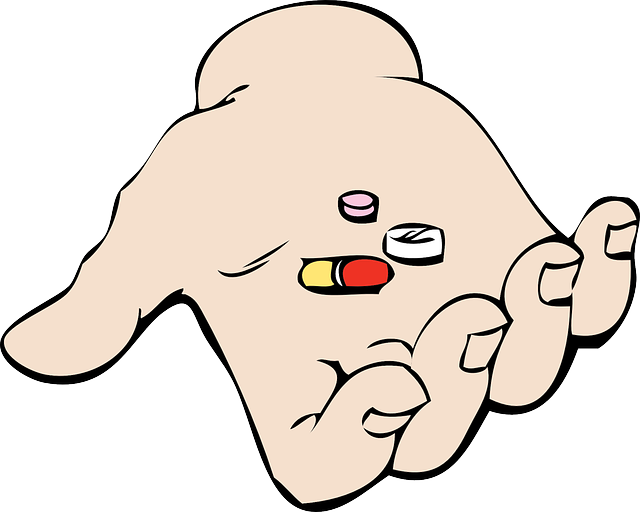Overcoming addiction requires sustained support, with traditional temporary fixes less effective than long-term guidance from recovery services. Online self-help resources, including virtual support groups and digital coaching platforms, offer valuable alternatives or supplements to traditional treatments. These tools cater to diverse needs, integrate mental health care, provide convenient access, and foster community and accountability. Combined with professional guidance, evidence-based medications, and trauma-informed care, these digital resources empower individuals in recovery to overcome challenges and achieve lasting sobriety.
Addiction recovery is a challenging journey, demanding consistent support and guidance. This article explores the vital role of recovery support services in empowering individuals to achieve and maintain sobriety. We delve into why ongoing assistance is crucial, particularly through online self-help resources that have revolutionized access to care. By examining effective strategies for utilizing these services, readers will gain insights to navigate their path to recovery with resilience and success, leveraging digital tools to foster accountability and encourage long-term wellness.
- Understanding the Importance of Ongoing Support in Addiction Recovery
- The Role of Online Self-Help Resources in Facilitating Recovery
- Effective Strategies for Utilizing Recovery Support Services and Sustaining Sobriety
Understanding the Importance of Ongoing Support in Addiction Recovery

The path to overcoming addiction is often fraught with challenges and setbacks. This is where ongoing support plays a pivotal role in an individual’s recovery journey. Unlike temporary fixes, recovery support services offer sustained guidance, ensuring individuals remain on track towards long-term sobriety. This continuous encouragement and accountability are crucial, especially considering the high rates of relapse that can occur without proper aftercare.
Online self-help resources for addiction recovery have become increasingly prevalent, providing accessible options for those seeking alternative or supplementary support. From virtual recovery support groups to digital platforms offering personalized coaching, these online tools cater to diverse preferences and needs. Moreover, for individuals grappling with co-occurring disorder treatment options, integrated online services that address both the addiction and any underlying mental health conditions can be transformative.
The Role of Online Self-Help Resources in Facilitating Recovery

The integration of online self-help resources has revolutionized the way individuals access support for their addiction recovery journey. These digital tools offer a convenient and accessible means to connect with like-minded peers, share experiences, and gain insights from those who have walked similar paths. Websites, mobile apps, and online forums dedicated to recovery provide a safe space for individuals to seek encouragement, learn coping strategies, and maintain accountability. Many platforms also incorporate interactive features such as guided meditations, yoga classes, and stress reduction techniques, which are essential components of Trauma-Informed Care, fostering holistic healing.
Furthermore, online self-help resources democratize access to recovery support, breaking down geographical barriers, making Rehabilitation Centers Near Me less intimidating, and providing alternatives for those who prefer or require remote assistance. These tools can complement traditional treatments, offering ongoing guidance and a sense of community long after initial therapy sessions have concluded. By leveraging the power of technology, individuals can take control of their recovery at their own pace, ensuring sustained progress and improved well-being.
Effective Strategies for Utilizing Recovery Support Services and Sustaining Sobriety

Recovery support services play a pivotal role in guiding individuals on their path to lasting sobriety. To make the most of these resources, it’s essential to develop a comprehensive strategy that combines professional guidance with personal commitment. Firstly, individuals should embrace online self-help resources for addiction recovery, which offer accessibility and convenience. These digital tools can provide structured programs, educational materials, and peer support networks tailored to specific needs. Regularly engaging with these resources helps maintain accountability and reinforces positive behaviors.
Additionally, integrating evidence-based medications for withdrawal management under professional supervision is a crucial strategy. Trauma-informed care, which recognizes the impact of past traumatic experiences on current behaviors, can offer profound benefits. This approach ensures that treatment plans are sensitive to individual histories, fostering trust and encouraging open communication. By combining these effective strategies with ongoing support, individuals in recovery can enhance their chances of sustaining sobriety and navigating life’s challenges with resilience.
Recovery support services, including online self-help resources for addiction recovery, play a pivotal role in an individual’s journey towards lasting sobriety. By offering ongoing guidance and accountability, these services help navigators stay on track, overcome challenges, and maintain the progress made during active recovery. Integrating effective strategies from these resources can significantly enhance the effectiveness of recovery plans, fostering a more robust and successful path to long-term wellness.






